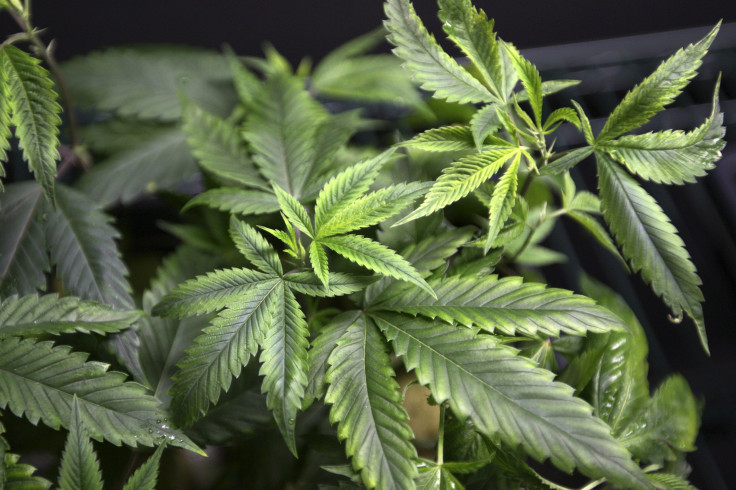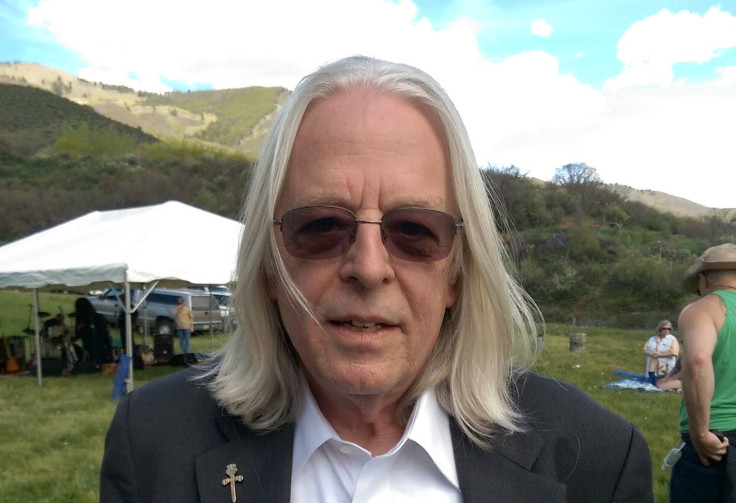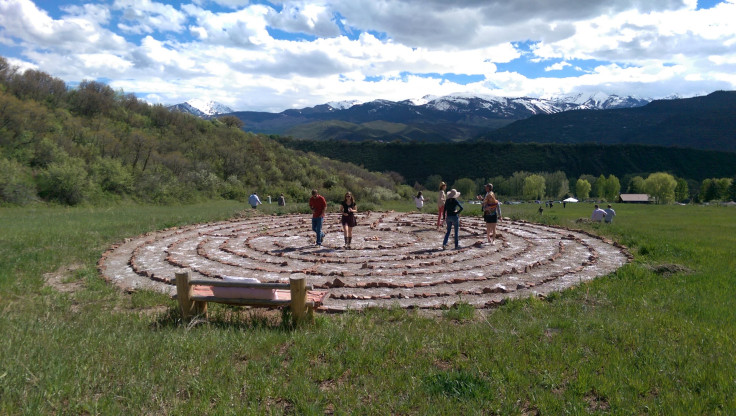Marijuana Legalization 2015: As Legal Pot Spreads, NORML, The Nation's Oldest Marijuana Advocacy Group, Faces Uncertainty

ASPEN, Colorado -- The funk of marijuana hung heavily in the air at Owl Farm, the remote mountainside compound where renegade journalist Hunter S. Thompson spent the last half of his life. Sitting on tree stumps and sprawled in the grass, casually clad folks puffed on well-packed bowls and joints. Nearby, a cover band blazed through Rolling Stones and Grateful Dead songs. Among all the pot paraphernalia, not a single new-fangled vaporizer pen could be seen. On this beautiful afternoon, it almost felt like Owl Farm had traveled decades back to a heady era when getting high was still sexy, illicit and countercultural.
But this wasn’t 1970; this was 2015. Most of the marijuana being smoked was purchased legally from one of the six recreational marijuana shops in Aspen, and those attending the festivities at Owl Farm were part of last weekend's annual NORML Aspen Legal Seminar. But the anachronistic vibe of the party was telling; just as the Owl Farm gathering felt like a throwback to an earlier time, the National Organization for the Reform of Marijuana Laws, the country's oldest and most famous cannabis advocacy group, is torn between past and future.
“It’s clear we are not as much outlaws as we used to be,” said Keith Stroup, the attorney who founded NORML 45 years ago and held court in Aspen as the organization’s legal counsel. “All the stuff that we used to do that was a little bit dangerous is actually legal, and you have people investing hundreds of millions of dollars to take it over.”
At the seminar, the 50 or so lawyers in attendance learned about the latest scientific research related to fighting “driving while high” charges, discussed the challenges of marijuana businesses paying federal taxes, and fretted about what a new memo from Lloyd’s of London could mean for the future of cannabis insurance policies. Stroup, who wore his grey hair in a ponytail and a marijuana-leaf pin on his lapel, estimated that 15 percent to 20 percent of the 350 or so defense attorneys on the NORML Legal Committee now also practice business law, shifting from keeping marijuana aficionados out of jail to helping them become legitimate business owners.
As marijuana becomes normalized, these elder statesmen of marijuana advocacy are getting squeezed from both sides: from newer, slicker and better-funded marijuana advocacy groups and from industry players looking to transform legalized cannabis from a pipe dream to big business. Unless NORML can navigate the rapidly shifting cannabis landscape, its members could be working themselves out of a job.
“NORML risks becoming marginalized,” said Stanford drug policy expert Keith Humphreys. “The people driving policy are people who can write big checks. The gentle hippies are not running the show anymore. How long can you remain defiant when nobody disagrees with you?”
New Pot Players
No moment at the NORML Aspen seminar, held at an off-season resort hotel at the foot of the ski slopes, better illustrated how far marijuana advocacy has come than when Joe DiSalvo, the liberal sheriff of Pitkin County, in which Aspen is located, took the podium to detail how his department is breaking all the cannabis rules. DiSalvo described an “amnesty box” he oversees at the Aspen-Pitkin County Airport where visitors can discard their unused pot before heading home on private jets. His sheriff’s deputies double as security escorts for marijuana workers making financial deliveries, since a lack of banking in the marijuana industry makes the high-cash business a target for theft. Next up, DiSalvo would like Aspen to take the lead in launching and regulating cannabis clubs, where folks would be able to partake of pot the way others go to bars to drink beer.
“You’re an awesome sheriff!” an attendee yells from his seat as DiSalvo garners applause. But one subject that goes unmentioned is how most people don’t associate the bold experiments like this occurring in Colorado, the first place in the world to regulate recreational marijuana, with NORML.
For years, NORML was the only major operation fighting for marijuana legalization. Borrowing from consumer-advocacy efforts championed by Ralph Nader in the 1960s, the organization -- founded in 1970 with a $5,000 grant from the Playboy Foundation -- argued that cannabis use was a consumer right and that marijuana prohibition was failed policy. That approach proved fruitful, leading to 11 states decriminalizing small amounts of marijuana. But efforts stalled in the 1980s, thanks in part to President Ronald Reagan’s drug-war crackdown. It didn’t help that NORML’s guiding light had been shown the door. In 1979, Stroup left NORML after he torpedoed the organization’s relationship with the Jimmy Carter administration by insinuating to the press that the president’s drug advisor had snorted cocaine at a NORML Christmas party. Fifteen years passed before Stroup was invited back into the fold.

In the meantime, other marijuana reform advocacy groups had begun to gain traction. In 2005, one of those groups, the Washington, D.C.-based Marijuana Policy Project (MPP), founded by former NORML staffers, tried a strategic approach in Colorado that no one had tried before. “Up to that point, the marijuana movement had been focusing on the harms of prohibition, and not really focusing on the harms of marijuana,” said Mason Tvert, who spearheaded MPP’s Colorado campaign, titled SAFER, short for Safer Alternative for Enjoyable Recreation. “If we want to make it legal, we need more people to understand that it is not that harmful, and it is actually less harmful than alcohol.”
Tvert’s safer-than-alcohol messaging proved instrumental with Colorado voters legalizing recreational marijuana in 2012, and now MPP has become the largest marijuana reform organization in the country in terms of funding and staff members. Most current initiatives to legalize medical or recreational marijuana around the country aren’t spearheaded by NORML, but instead by MPP or another nonprofit, the New York City-based Drug Policy Alliance (DPA), both of which are characterized by slick media-savvy campaigns, well-oiled political machinery and deep-pocketed funders.
Fundraising has never been NORML’s strong suit, admitted Stroup. And NORML, which focuses on grassroots efforts by state and local chapters, isn’t designed for the sort of targeted, top-down political campaigns MPP and DPA have become known for. But longtime NORML members say they’re not worried about being overshadowed by upstarts on the scene.
“I don’t think there’s a risk of NORML getting pushed to the side,” Dan Viets, secretary of NORML’s board of the directors, said at the Aspen conference. “There are a lot of new groups, but they have all spun out from NORML in one way or another. And what’s also true is that of all these groups, none of them has the name recognition that NORML has.”
Profits vs. Protests
On Friday afternoon at the legal conference, before launching into his seminar on new developments in drug sentencing law, trial attorney Hal Haddon took a few moments to remember one of his most famous clients: Thompson, who killed himself here in Aspen 10 years ago. As Haddon noted with a bit of pride, “Hunter committed a minimum of 10 felonies a day.” Hal added he wasn’t sure how the gonzo writer would take the new world of legit pot. “[Thompson] would be shocked to hear about all this discussion about regulation and how marijuana is regulated,” he said.
These days, there are cannabis trade associations, cannabis lobbying firms and cannabis corporate law groups, not to mention labor unions lobbying for marijuana workers rights. As marijuana policy guru Mark Kleiman noted at a Brookings Institution discussion in April, “[We are seeing] the slow morphing of the marijuana movement into the cannabis lobby. Man, I expect that when we have national legalization the law’s going to be written by the National Cannabis Industry Association ...”
That growing cannabis lobby could prove problematic for longtime marijuana activists. For starters, some of the top talent who’ve long worked with NORML or other policy groups like Americans for Safe Access could turn their attention to private industry. “Advocacy groups might have a difficult time moving forward because a lot of the best people might be hired by the private sector,” said Brian Vicente, a Denver marijuana attorney and former co-director of Colorado’s marijuana legalization campaign. “If we have a brain drain, it’s safe to say that the advocacy groups will not be as effective, and that’s bad. I am not saying we are trying to poach people, but we have hired a bunch of people from MPP and DPA.”

Then there’s the fundraising issue: As news reports proliferate of high rollers in the cannabis industry, how should activists plead their case to potential donors? “If you get to a point where the big funders don’t want to fund it anymore because you can just get money from the industry, these groups are going to have to rely on industry funds,” said Alex Kreit, a drug law expert at Thomas Jefferson School of Law in San Diego. “If these groups have to rely solely or mostly on the industry to fund ballot measures, those measures are going to look very different.” There are hints we’re already approaching an era of industry-dominated marijuana politics; a well-funded marijuana legalization initiative in Ohio this year aims to concentrate control of the state’s cannabis industry among a small set of powerful investors.
There’s another point of contention between NORML activists and industry stakeholders: how to deal with criminal activity. “To a certain extent, these are groups who have different opinions on how the black market should be dealt with,” said Michael Elliott, executive director of the Colorado-based Marijuana Industry Group, who attended the Aspen conference. Elliot pointed out that when Sheriff DiSalvo told his audience that he didn’t bust a local for surreptitiously turning his backyard pool into a marijuana greenhouse, most attendees applauded his decision. But to Elliott, that pool represents hundreds of illegitimate marijuana plants that could flood the legal market. “We represent licensed, regulated tax businesses that spend an incredible amount of time and money complying with very onerous regulations,” Elliott said. “It’s very frustrating for people who are doing it right, in compliance with every state law, to see black market operations operating with impunity.”
Protecting Consumers
It’s also possible that the growing corporatization of marijuana could guarantee that NORML will always have a role. After all, NORML began as a consumer-advocacy organization. Now, for the first time, marijuana users are being recognized as legitimate consumers – and with the rise of Big Pot, those consumers could need more protection than ever.
“Certainly NORML has oriented itself since its foundation as a consumer-oriented lobby,” said Paul Armentano, deputy director of NORML, at the Aspen conference. “Even as laws change, as we go from criminalization to regulation, there will still be a need to have consumers represented in the negotiations that take place. As it moves from an illicit market to a legal market, one could argue there will be a greater need to represent the consumers.”
NORML’s decentralized structure could prove useful as the organization tackles the shifting nature of marijuana consumer advocacy. The vast majority of NORML chapters still have a lot of work to do before their respective states legalize marijuana. But Colorado’s NORML chapter is off and running with new marching orders. “Our main focus is no longer keeping people out of jail; it’s making sure we don’t overregulate so that we protect consumers and keep the market free,” said Colorado NORML Executive Director Rachel Gillette, who’s tackling issues ranging from pesticide use in grow facilities to consumer access to product testing. “I think NORML is unique in this space. There is no other organization fighting to keep people from getting arrested, but also advocating for the consumer.”
Stroup believes it all fits into his original idea behind NORML. “NORML is the only organization that has traditionally spoken for the consumer,” he said amid the festivities at Owl Farm. “All of the other organizations speak in the third person when they talk about marijuana consumers. We say, we. We have always started with the idea that there is nothing wrong with smoking marijuana. So it is important to identify as smokers when we have a chance.”
Then he turned back to the party, to do just that.
© Copyright IBTimes 2024. All rights reserved.






















